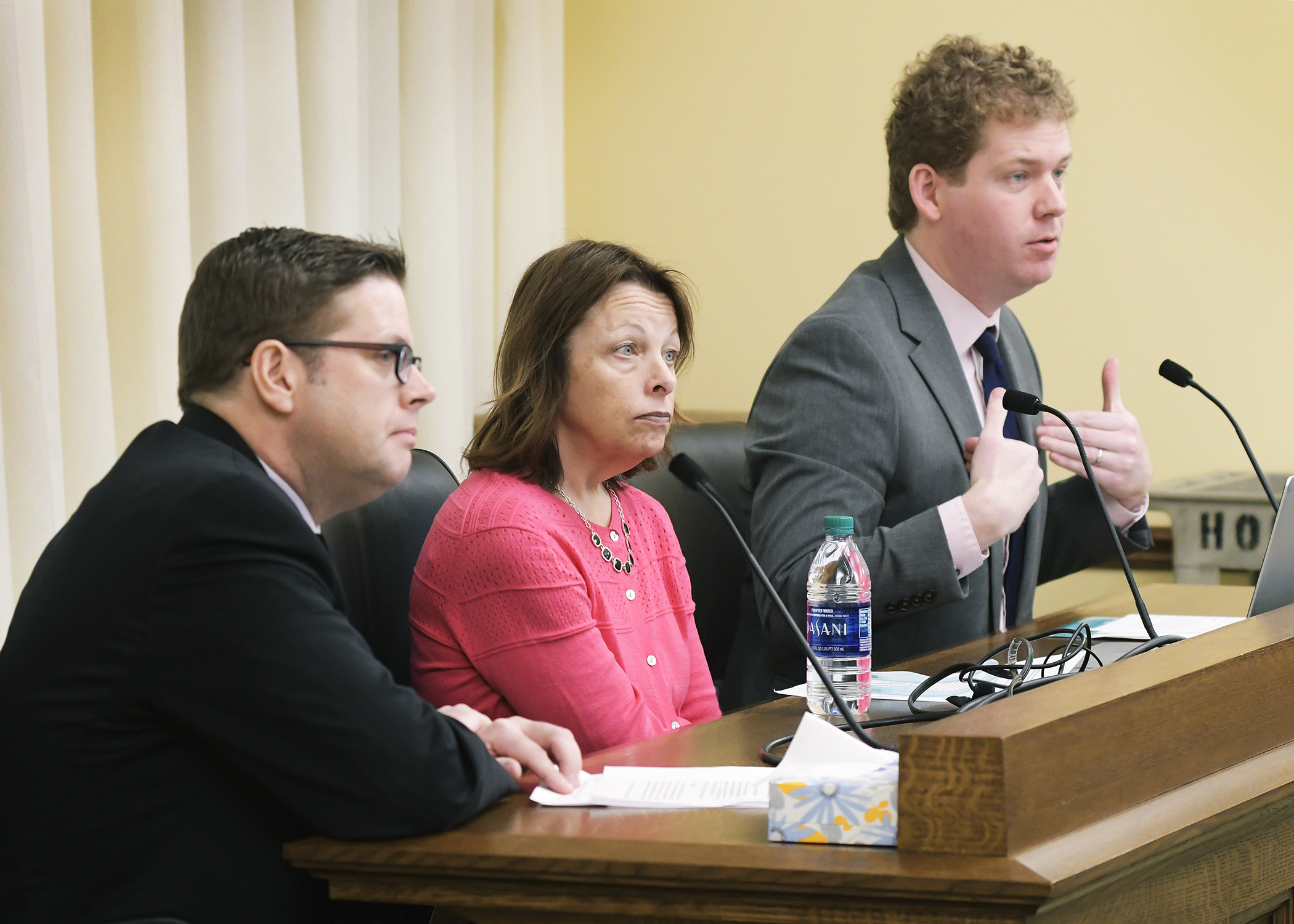Bill would help buses dump the diesel and go electric

If you take the bus, you could be in for a quieter ride.
HF1755, sponsored by Rep. Zack Stephenson (DFL-Coon Rapids), would appropriate $4.1 million in the current fiscal year to the Metropolitan Council to purchase electric buses, and require any new buses purchased to operate solely on electricity until the appropriation is exhausted.
The House Energy and Climate Finance and Policy Division laid the bill over for possible omnibus bill inclusion on Thursday. Its companion, SF2473, sponsored by Sen. Paul Anderson (R-Plymouth), has been referred to the Senate Transportation Finance and Policy Committee.
In introducing the proposal, Stephenson pointed out that the transportation sector is now the state’s leading source of carbon emissions, a key factor in climate change.
“Buses matter because for every 1,000 electric buses on the road, 500 barrels of diesel are displaced each day, according to estimates,” Stephenson said. “By comparison, 1,000 electric cars on the road remove only 15 barrels. And this bill dovetails nicely with plans already underway. In December, Metro Transit announced plans to start a transition to electric buses. There’s great timing, in that Metro Transit says that 170 of their diesel buses need to be replaced in 2023 and 2024.”
Mona Meyer, state council president of the Communications Workers of America, said the bill is also a job creator for Minnesota. The U.S.’ largest maker of buses, New Flyer, has two of its five North American bus manufacturing plants in Minnesota, employing over 1,000 workers at facilities in St. Cloud and Crookston.
Rep. Dave Baker (R-Willmar) asked about the price difference between electric buses and conventional diesel models. Stephenson said that the differences can range between $200,000 and $500,000 per vehicle, depending upon “a lot of factors.”
In endorsing the bill, Rep. Frank Hornstein (DFL-Mpls) said that California has set a goal of 2029 to have an all-electric bus fleet.
Stephenson is also the sponsor of HF2618, which would fund a demonstration grant program for the purchase of electric school buses. The bill would appropriate $500,000 in Fiscal Year 2020 to help a school district buy an electric bus. It, too, was laid over for possible omnibus bill inclusion, but has no Senate companion.
Stacey Fujii, director of governmental affairs for Great River Energy, spoke of a successful pilot project undertaken by her utility and the Lakeville School District. She said their vehicle cost $325,000 when purchased in 2017, but was told that “they’ve come down about 5 or 6 percent.” Responding to questions about how far one can go on a charge and if electric buses are “dangerously quiet,” Fujii said that the bus in Lakeville travels 82 miles a day, makes 96 stops and plays music as it approaches students.
Rep. Chris Swedzinski (R-Ghent) asked how many buses the grant might buy. Stephenson replied, “More than one,” and Swedzinski suggested that, if two are purchased, one be in an urban area and one rural.
Related Articles
Search Session Daily
Advanced Search OptionsPriority Dailies
Speaker Emerita Melissa Hortman, husband killed in attack
By HPIS Staff House Speaker Emerita Melissa Hortman (DFL-Brooklyn Park) and her husband, Mark, were fatally shot in their home early Saturday morning.
Gov. Tim Walz announced the news dur...
House Speaker Emerita Melissa Hortman (DFL-Brooklyn Park) and her husband, Mark, were fatally shot in their home early Saturday morning.
Gov. Tim Walz announced the news dur...
Lawmakers deliver budget bills to governor's desk in one-day special session
By Mike Cook About that talk of needing all 21 hours left in a legislative day to complete a special session?
House members were more than up to the challenge Monday. Beginning at 10 a.m...
About that talk of needing all 21 hours left in a legislative day to complete a special session?
House members were more than up to the challenge Monday. Beginning at 10 a.m...